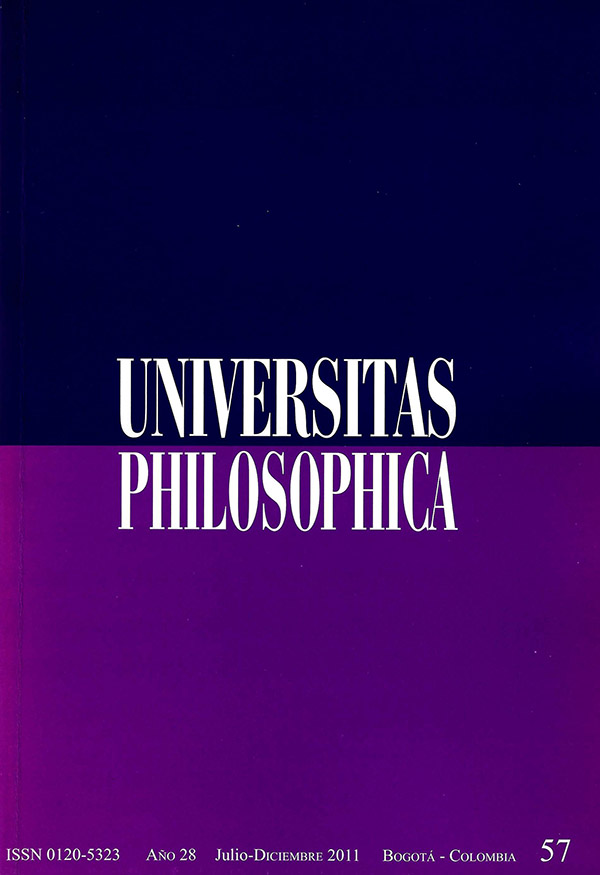Resumen
Con mucha frecuencia se sostiene la tesis de que, aunque en el período de Ser y tiempo Heidegger era crítico de la concepción griega del ser como presencia (Anwesenheit, Praesenz), él adoptó a nombre propio la concepción de ser como presenciar (Anwesen) en su período tardío. En este artículo arguyo que aunque esta tesis es verdadera desde un punto de vista general, requiere ser especificada en gran medida. Sostengo que la noción de Anwesen sólo llegó a expresar el pensamiento propio de Heidegger hacia la mitad de los años 40 y tras un proceso complejo y relativamente largo que es correlativo, por una parte, a la evolución de su uso del término ‘Wesen’, y por otra, a su reapropiación de los presocráticos. En el texto presento los detalles de este proceso y sugiero que el hecho de que Heidegger se decidiera relativamente tarde a emplear el término ‘Anwesen’ como expresión de su propia concepción de ser, puede ser visto como parte de su esfuerzo por alcanzar un punto de equilibrio entre distintos aspectos de dicha concepción.
Esta revista científica se encuentra registrada bajo la licencia Creative Commons Reconocimiento 4.0 Internacional. Por lo tanto, esta obra se puede reproducir, distribuir y comunicar públicamente en formato digital, siempre que se reconozca el nombre de los autores y a la Pontificia Universidad Javeriana. Se permite citar, adaptar, transformar, autoarchivar, republicar y crear a partir del material, para cualquier finalidad (incluso comercial), siempre que se reconozca adecuadamente la autoría, se proporcione un enlace a la obra original y se indique si se han realizado cambios. La Pontificia Universidad Javeriana no retiene los derechos sobre las obras publicadas y los contenidos son responsabilidad exclusiva de los autores, quienes conservan sus derechos morales, intelectuales, de privacidad y publicidad.
El aval sobre la intervención de la obra (revisión, corrección de estilo, traducción, diagramación) y su posterior divulgación se otorga mediante una licencia de uso y no a través de una cesión de derechos, lo que representa que la revista y la Pontificia Universidad Javeriana se eximen de cualquier responsabilidad que se pueda derivar de una mala práctica ética por parte de los autores. En consecuencia de la protección brindada por la licencia de uso, la revista no se encuentra en la obligación de publicar retractaciones o modificar la información ya publicada, a no ser que la errata surja del proceso de gestión editorial. La publicación de contenidos en esta revista no representa regalías para los contribuyentes.


